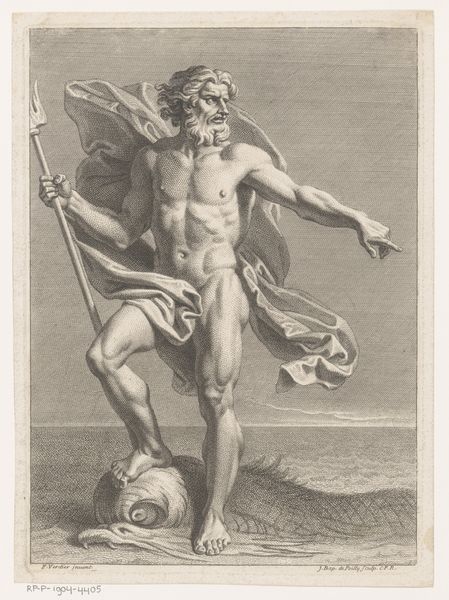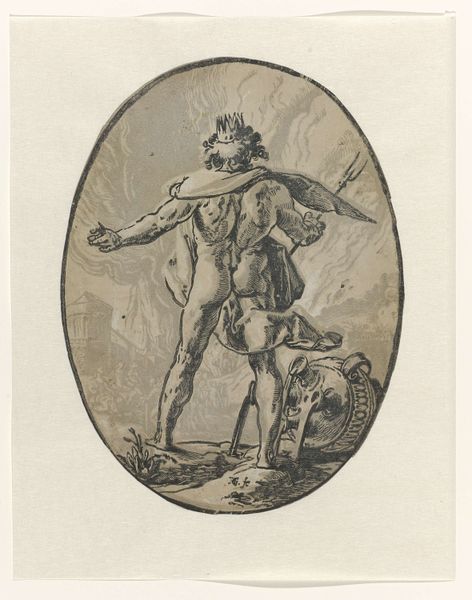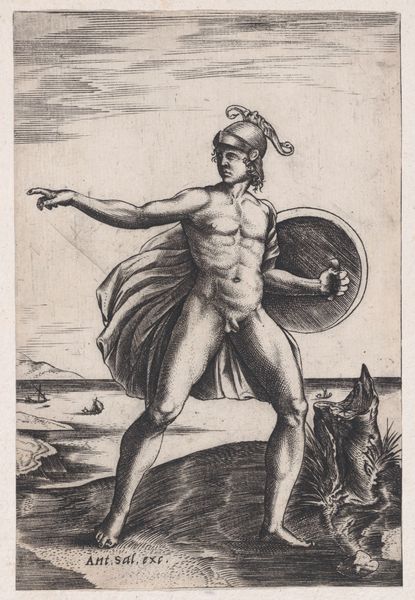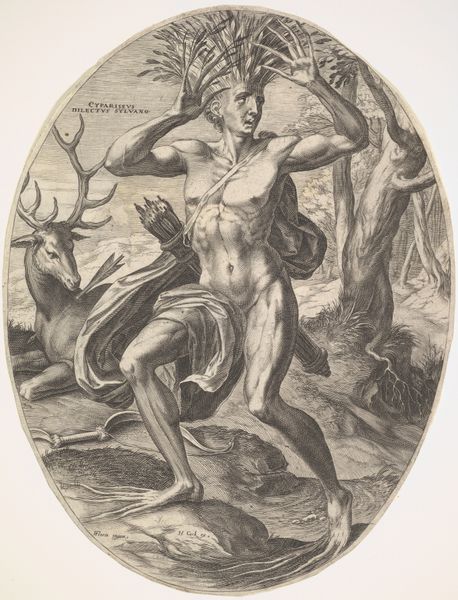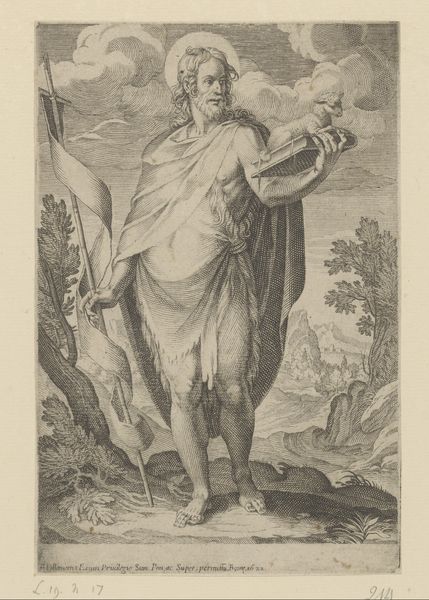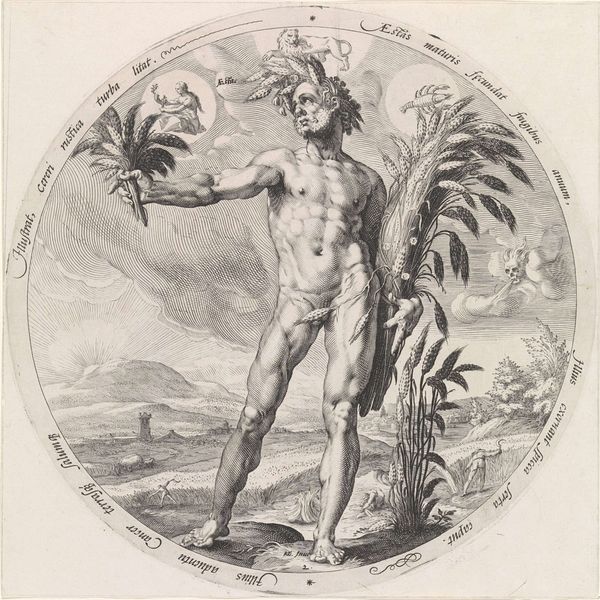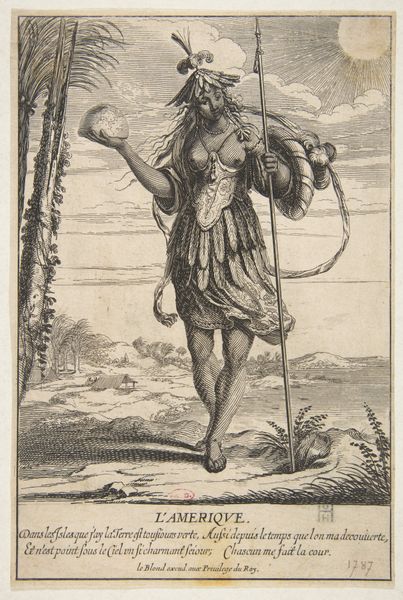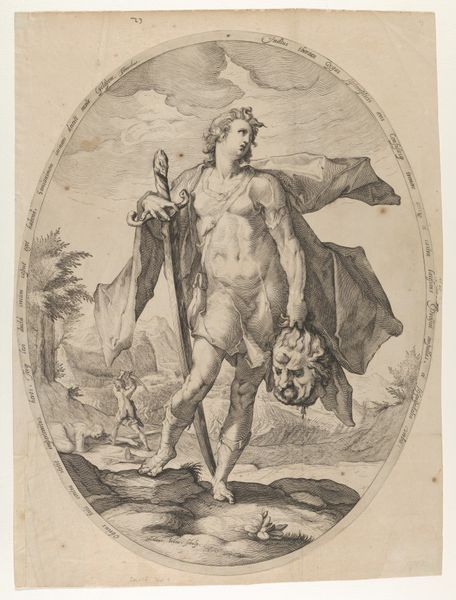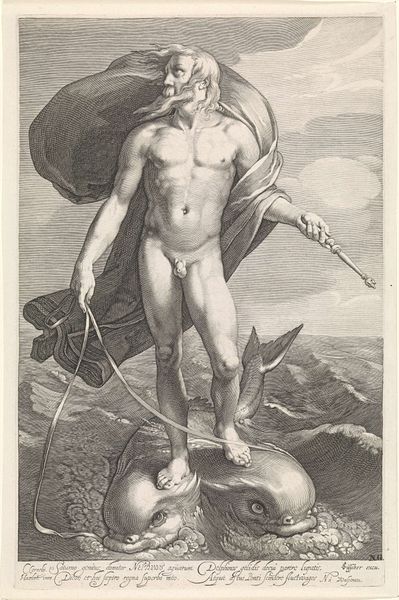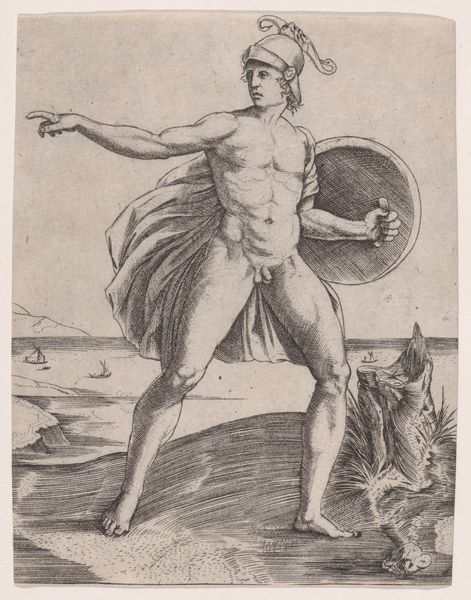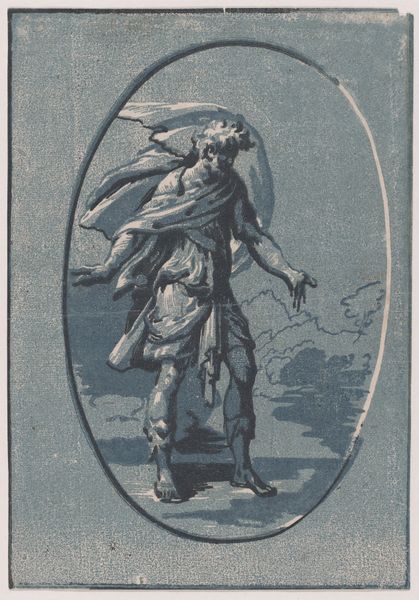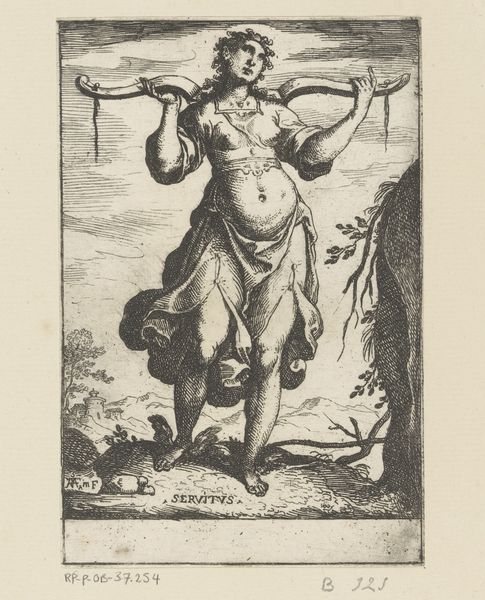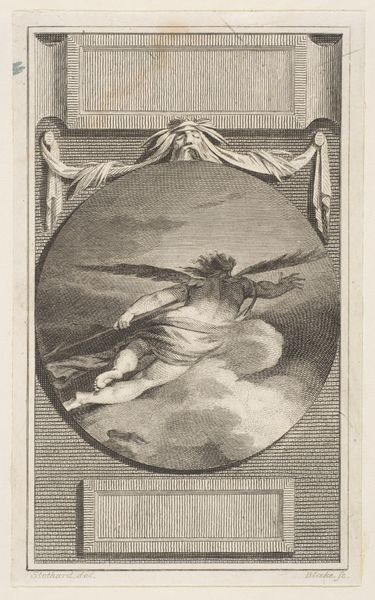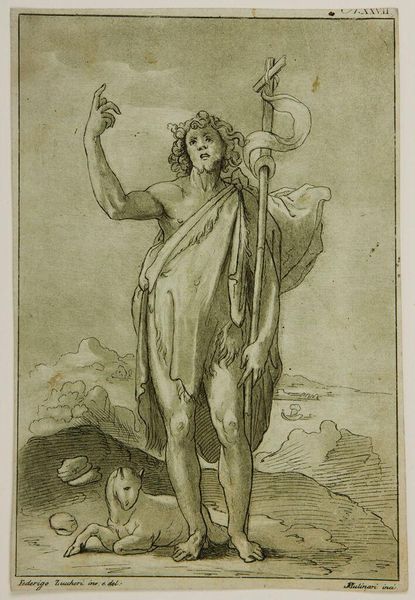
engraving
#
mannerism
#
figuration
#
pencil drawing
#
mythology
#
portrait drawing
#
history-painting
#
nude
#
engraving
Dimensions: 26.4 x 34.9 cm
Copyright: Public domain
Curator: Here we have Hendrick Goltzius' engraving, "Apollo," from 1588. What are your immediate impressions? Editor: Dramatic, and a bit…unsettling. The musculature is exaggerated, almost grotesque, but technically stunning. The play of light and shadow gives the figure tremendous presence, bordering on theatrical. Curator: Goltzius was a master of Mannerism, a style known for its dramatic flair and artful exaggeration. The exaggerated musculature is quite typical; it’s meant to convey Apollo's divine power. He's presenting an idealized vision, steeped in classical references but pushed to an extreme. What symbols stand out? Editor: Beyond the figure itself, the oval frame emphasizes this contained energy. Note how the light radiates, framing Apollo as a sort of sun god while illuminating a tiny depiction of his chariot crossing the sky behind him. He has something like a lightning bolt in his right hand? Curator: It’s also worth considering what Apollo embodies – harmony, order, reason, even prophecy, though he doesn't look much like a harbinger of serene rationalism here! Apollo stands on an orb, symbolizing his dominion, as a nude representation of masculinity, while he carries an arrow implying direction, power, or even, considering the clouds around him, some kind of meteorological influence. Editor: That small orb feels strangely unstable beneath such a monumental figure, adding to the visual tension. You mention 'meteorological' power. I'd noticed the clouds: the whole scene swirls and seems poised to either ascend into clarity, or maybe dissolve into a kind of tempest. Is that instability deliberate? Curator: Given Mannerism’s love for complexity, and considering that the traditional myth emphasizes Apollo’s beauty, music, and light, I’d venture that this tension embodies the internal struggles of a god forced to confront a chaotic reality. Editor: Yes, that tension creates such a powerful, if somewhat disturbing image. I won't forget this interpretation of Apollo any time soon. Curator: Exactly, seeing this familiar myth portrayed through such deliberate intensity certainly alters one’s perception of divinity itself.
Comments
No comments
Be the first to comment and join the conversation on the ultimate creative platform.
